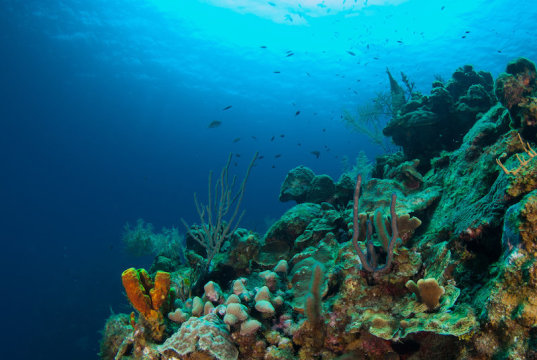According to new research in the journal Marine Ecology Progress Series, the number of young corals on tropical reefs has declined by 85 percent and doubled on subtropical reefs during the last four decades i.e. the coral reefs are retreating from equatorial waters and establishing new reefs in more temperate regions.
Due to climate change, the temperature of the ocean is increasing day by day and thus making subtropical environments more favourable for corals than the equatorial waters where they traditionally thrived.
This is also drifting coral larvae to settle and grow in new regions. These subtropical reefs could provide refuge for other species challenged by climate change and new opportunities to protect these fledgling ecosystems.
Nichole Price, a senior research scientist at Bigelow Laboratory for Ocean Sciences and lead author of the paper, said, “Climate change is redistributing coral reefs, the same way it is shifting many other marine species. The clarity in this trend is stunning, but we don’t yet know whether the new reefs can support the incredible diversity of tropical systems.”
The researchers believe that only certain types of coral are able to reach these new locations, based on how far the microscopic larvae can swim and drift on currents before they run out of their limited fat stores. The exact composition of most new reefs is currently unknown, due to the expense of collecting genetic and species diversity data.
The associate professor at Okinawa Institute of Science and Technology Graduate University and an author of the study, Satoshi Mitarai said, “We are looking at the ecosystems transition to new blends of species that have never coexisted, and it’s not yet clear how long it takes for these systems to reach equilibrium. The lines are really starting to blur about what a native species is, and when ecosystems are functioning or falling apart.”
Price and his colleagues, an international team of collaborators from 17 institutions and 6 countries, examined coral settlement trends up to 35 degrees north and south of the equator. They found that reefs were shifting poleward equally on either side of the equator, and said the new reef locations could help provide refuge to other marine species moving in response to climate change. But the scientists also said that because of the cost to collect and analyze species data on reefs, they are not sure which coral species are migrating poleward and which ones aren’t. They also are unsure how well these new reefs will fare in their new locations over the long-term.
Price added, “The changes we are seeing in coral reef ecosystems are mind-boggling. We need to work hard to document how these systems work and learn what we can do to save them before it’s too late.”

Leave a Reply